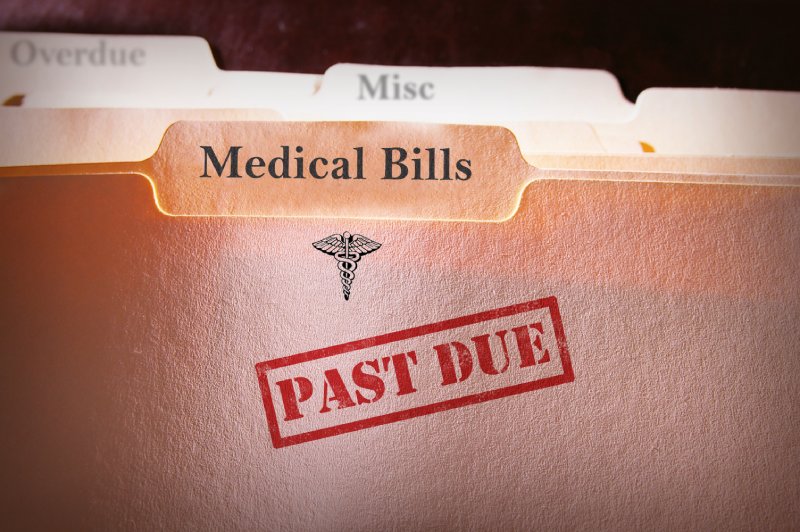Do you want to know the sad truth? You could very easily have a medical bill in collections and not even know it.
One third of all Americans have some bills–credit cards, house payments, car payments, and, yes, medical bills–in collections.
The sad fact is that there are so many bills that come when you go to the hospital or an urgent care clinic that you might very easily miss one or two. It’s very possible, in fact, it’s highly likely, that a trip to the emergency room will result in you getting three, four, or five different bills. Maybe one from radiology, one from the doctor, one from the lab, one from the hospital itself–and it’s easy for a bill to slip through the cracks.
And this is to say nothing of the fight with the insurance company trying to get them to pay their part. At some point, somewhere, some bill is going to go unnoticed and you could end up in collections.

Can a medical bill be sent to collections even if you’re paying it?
Yes! Even if you’re paying your medical bill every month on a payment plan, something as small as being three days late could automatically kick the bill into collections. A simple accounting error on your part could send you into debt collection and majorly hurt your credit report.
Medical debts–unpaid medical debt–will send you to a collection agency and you’ll have that debt on your credit report, affecting your credit score.
The Right To Dispute
But let’s not be all doom and gloom. Medical debt in collections is treated a little differently from other kinds of collection accounts. According to the Fair Debt Collection Practices Act, you have the right to get written confirmation of your debt and you have the right to dispute it.
There’s also some generally good news about medical bills with debt collectors: major credit bureaus give less weight to medical debts so they don’t impact your credit report as much as consumer debt. Also, there’s a 12 month grace period on medical debt before it gets reported to the credit bureaus.During this grace period, you can dispute and resolve any medical bills that come your way.
How To Dispute Medical Bills
We talk about this all the time, but only because it’s so important. There’s a three-step process for disputing medical bills.
First, you request an itemized medical bill from the health care company, clinic, or hospital. And make sure that they include CPT codes–the billing codes that have a dollar amount attached to each one.
Second, you research the CPT codes to see what Medicare will pay for each one of them. This is the baseline. You should never pay more than this amount for any medical service.
Finally, you tell the medical institution that you are going to pay the amount you’ve calculated, and you make an agreement to pay it.
This method can get you paying significantly less, and it can get your medical debt out of collections and enable you to pay the bills.
